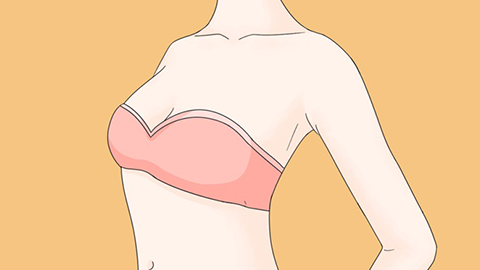What are the common breast diseases?
Generally, breast diseases may include mastitis, mammary hyperplasia, breast fibroadenoma, breast cysts, breast cancer, etc. The specific analysis is as follows:

1. Mastitis
Mastitis is often caused by bacterial infection, commonly secondary to nipple damage and milk stasis, leading to an inflammatory response in the breast tissue, which may be accompanied by symptoms such as breast pain, redness and swelling, and fever. Treatment may include medications such as amoxicillin capsules, cephalexin capsules, and metronidazole tablets under the guidance of a doctor.
2. Mammary Hyperplasia
Mammary hyperplasia mainly results from endocrine hormone imbalance, especially the imbalance between estrogen and progesterone. Long-term effects on breast tissue cause changes such as hyperplasia and incomplete regression, accompanied by symptoms like breast pain, swelling, and nodules. Patients may take medications such as Runing Granules, Guizhi Fuling Capsules, and Rukang Tablets according to medical advice.
3. Breast Fibroadenoma
Breast fibroadenoma is associated with abnormally increased sensitivity of fibrocytes within the mammary lobules to estrogen. Continuous estrogen stimulation leads to excessive proliferation of fibrous tissue and glandular epithelium, forming a tumor. Breast masses are usually single, hard, well-defined, mobile, and typically painless. Smaller fibroadenomas can be monitored regularly, while larger ones or those affecting appearance can be considered for surgical removal.
4. Breast Cysts
Breast cysts are mostly caused by blockage of the mammary ducts, leading to fluid retention within the ducts and the formation of cystic masses. These masses are round, smooth, elastic, and may change with the menstrual cycle. Asymptomatic cysts can be monitored regularly, while symptomatic or larger cysts may be considered for surgical removal or aspiration.
5. Breast Cancer
Breast cancer is caused by a combination of genetic factors, abnormal hormone levels, unhealthy lifestyle habits, and environmental factors, which promote malignant transformation of mammary epithelial cells. Symptoms may include breast lumps, skin changes, and enlarged axillary lymph nodes. Surgical removal under medical guidance, including removal of the entire breast and dissection of axillary lymph nodes, can significantly remove tumor tissue and reduce the risk of local recurrence.
Women should regularly perform breast self-examinations and professional examinations to detect and treat breast diseases promptly. Maintaining good lifestyle habits and mental well-being also helps prevent breast diseases.






